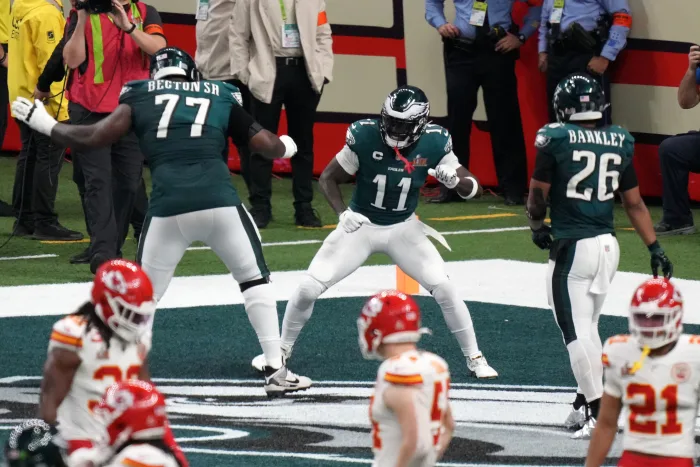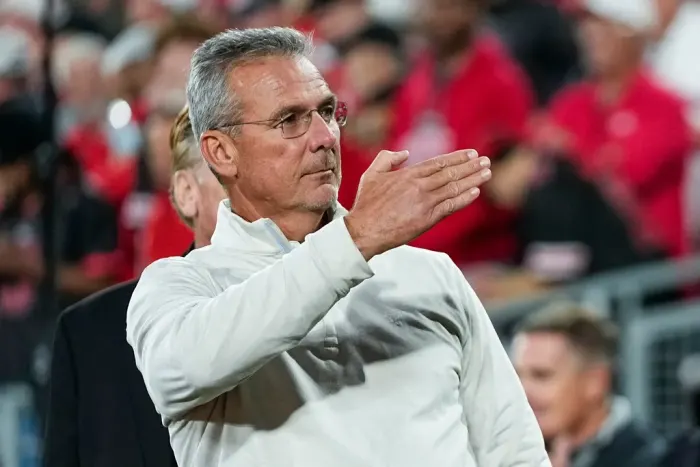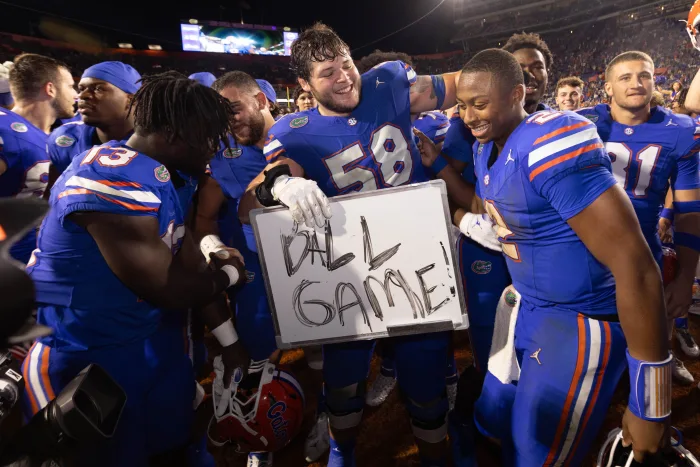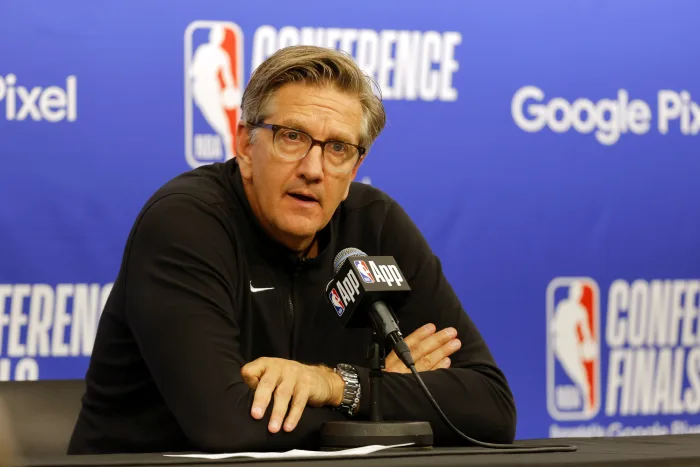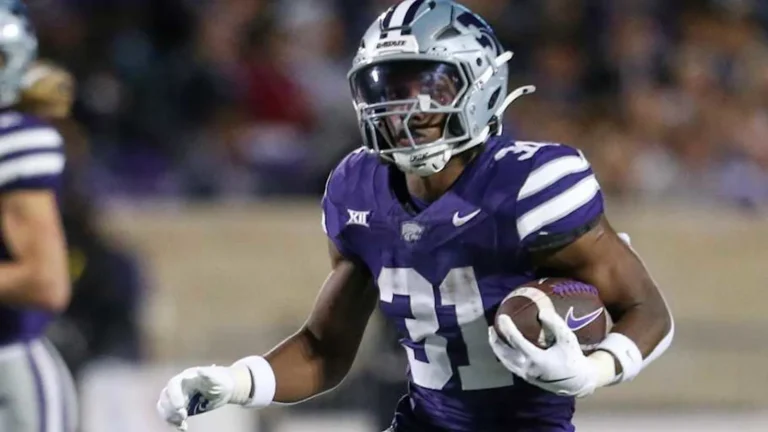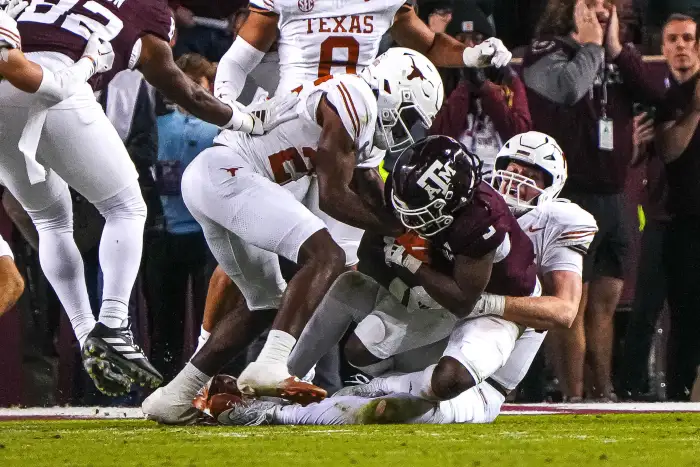Commanders must avoid Deebo Samuel trade despite Adam Peters connection
Deebo Samuel is available. The Commanders should think twice about the possibility.
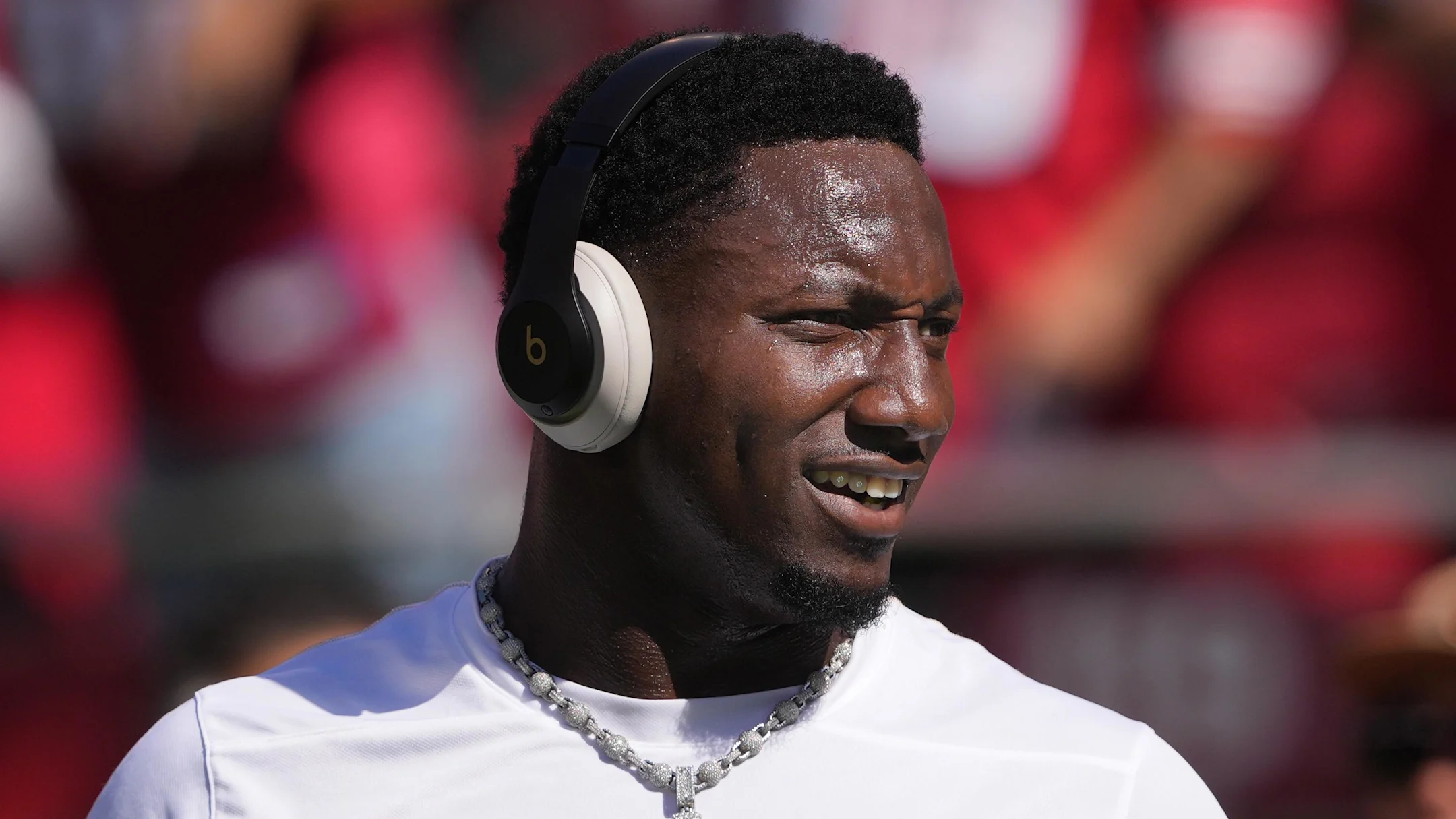
Washington Commanders general manager Adam Peters knows how good a player Deebo Samuel Sr. has been.
Peters was vice president of player personnel in San Francisco when the Niners chose the wide receiver in the second round of the 2019 NFL Draft. He had a front-row seat to Samuel’s breakout 2021 season when he began running out of the backfield, accumulating more than 1,700 yards from scrimmage and 14 touchdowns. For his efforts, the versatile weapon was chosen as a first-team All-Pro.
Over the past three seasons, Samuel has been a major offensive weapon on a team that has consistently made deep playoff runs. For a franchise like the Commanders, who desperately want to give their young star quarterback Jayden Daniels more firepower, reuniting the former South Carolina star with Peters seems like a match made in heaven.
If only the Commanders would be getting the Samuel of 2021.
Commanders must be wary of potential Deebo Samuel trade
That is not the player they would be getting should they engineer a trade. That possibility has become a hot topic ever since Samuel’s request for a fresh challenge was granted.
There are always caveats to these kinds of imagined scenarios. If the risk — via capital surrendered and salary renegotiation — was low, then bring Samuel to D.C. But that is not likely to be the reality. Under realistic scenarios, there is no way Peters should acquire the wideout at this time.
Samuel’s production was still quite good in 2023. But it fell off in a major way last season. He just turned 29 years old. Some receivers have maintained their productivity into their early 30s, but it tends to be the exception rather than the rule.
Given his physical style of play and snaps out of the backfield throughout his career, Samuel most likely has more wear and tear on his body than receivers who stay out of the trenches.
That has shown up in nagging injuries. Samuel has missed a few games every season he has played. He is as tough as they come and tends to play through those issues, but their cumulative effect must take its toll.
Samuel recorded his fewest catches since his second season in 2024. More important than mere receptions, his ability to make game-changing plays fell off significantly.
There is a statistic called ‘receiving success rate’. It is based upon how many yards a receiver generates per target when taking into account down and distance. On first down, a reception that gains 40 percent of the yards required to move the chains is considered successful. On each successive down, the required yardage goes up. It is a good way to measure how useful a wideout is in the context of his offense.
Samuel had the lowest success rate of his career by a wide margin this season. It hovered around 40 percent. He had only been below 50% one year, in 2022, when he was at 48%. That is not a good sign for an older receiver.
Equally troubling was Samuel’s yards-per-rush, which took an even bigger hit. He entered the season with a career yards-per-rush of 6.3. That’s a genuine weapon. That diminished to 3.4 yards per carry in 2024.
One of Samuel’s greatest assets has been his ability to run out of the backfield. His 2024 season suggests that this ability is in steep decline. He had the fewest combined first downs and touchdowns since that injury-plagued second season.
The question for any general manager interested in acquiring Samuel is this: does his poor 2024 season represent genuine decline or is it largely attributable to the myriad problems that plagued San Francisco throughout the entire year?
Their offense never looked in sync. Fellow receiver Brandon Aiyuk held out in the preseason and featured just seven times. Star running back Christian McCaffrey was out half the year with Achilles problems. All-world left tackle Trent Williams missed close to half the year as well.
No one, apart from tight end George Kittle, had a particularly good season on San Francisco’s offense.
Samuel carries a hefty price tag for 2025. John Lynch won’t give away a former All-Pro receiver who doesn’t turn 30 until next year for nothing. Again, the merits of such a trade would come down to those specifics.
There’s a general principle involved to which most good teams adhere. You simply don’t trade for players who are past their prime. That is not how you build.
The older players Peters brought in last year — Bobby Wagner, Zach Ertz, Austin Ekeler — were all free agents. The team didn’t have to give up anything aside from cash to acquire them. They did not inherit a contract. They met the team’s needs.
Aiyuk was a reported trade target for Peters last offseason. He is three years younger than Samuel and theoretically just entering his prime. Those three years matter.
If the Commanders could have the Samuel of three years ago, it would be a coup. Today, it’s a risk not worth taking.
